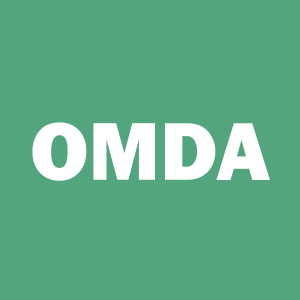Omada Health Launches “Meal Map,” an AI-Powered Nutrition Experience Focused on Nutrient Quality, Not Calorie Counting
Rhea-AI Summary
Omada Health (Nasdaq: OMDA) has launched Meal Map, an innovative AI-powered nutrition tool integrated within their Nutritional Intelligence capability. This new feature provides instant feedback on nutrient composition and focuses on nutrient quality rather than calorie counting.
The tool, piloted with over 1,000 members, showed increased meal engagement compared to traditional approaches. Meal Map combines AI-powered feedback with human care teams, offering weekly progress reports on nutritional quality and water intake, along with dietitian-vetted recipes through OmadaSpark.
This evidence-based approach aims to help members improve their relationship with food, particularly relevant in the context of increased GLP-1 medication use and rising fad diet popularity. The focus on nutrient density has been linked to various health benefits, including improved immune system function, energy levels, digestive health, and reduced risk of cardiovascular diseases.
Positive
- Demonstrated increased member engagement in pilot program with over 1,000 participants
- Integration of AI technology with human care teams for personalized nutrition guidance
- Evidence-based approach addressing growing market need amid GLP-1 medication trend
- Expansion of service offering enhancing company's competitive position in virtual healthcare
Negative
- Early-stage implementation with limited long-term efficacy data
- Potential challenges in scaling personalized nutrition guidance
News Market Reaction
On the day this news was published, OMDA gained 1.42%, reflecting a mild positive market reaction.
Data tracked by StockTitan Argus on the day of publication.
The approach defies the restrictive weight loss paradigm, with early results indicating increased meal tracking and member engagement1 with new real-time, personalized nutrition guidance
SAN FRANCISCO, Oct. 01, 2025 (GLOBE NEWSWIRE) -- Omada Health (Nasdaq: OMDA), the virtual between-visit healthcare provider, launches Meal Map, a new nutrient-categorization tool that combines AI-powered instant feedback with human care teams to help members in its cardiometabolic programs understand the nutrient quality of their food choices. Built within Omada’s Nutritional Intelligence capability, Meal Map is designed to help members make informed food choices, with an aim towards fostering confidence and long-term healthy habits.
In an era of increased GLP-1 use2 and rising popularity of fad diets,3 people are confused about nutrition and are seeking sustainable approaches to health beyond restrictive dieting.4 Meal Map is designed to meet this need by helping members improve their relationship with food, moving away from categorizing foods as "good" or "bad" to an evidence-based,5 nutrient-dense approach. Focusing on nutrient-density has been proven to promote broad health benefits, including supporting a robust immune system,6 boosting energy levels,7 improving digestive health,8 and reducing the risk of cardiovascular diseases such as stroke and diabetes,9 as well as certain cancers.10
In a pilot program with over 1,000 members, Meal Map demonstrated promising early results, as members showed an increase in meal engagement compared to traditional approaches.1 The tool provides instant feedback on nutrient composition of meals and delivers weekly progress reports on nutritional quality and water intake. Utilizing insights from tracked meals, members also receive recommendations for dietitian-vetted recipes through OmadaSpark, Omada's AI-powered nutrition education tool that launched earlier this year.
“This evidence-based approach fills a critical gap in the market for a tool that moves beyond simple calorie counting and food restrictions, which isn’t always necessary to lose weight;5 instead, it focuses on nutritional value and food freedom,” said Justin Wu, MD, VP of Clinical Innovation and Quality at Omada Health. “By analyzing member behavior, gathering insights from our care teams, and listening to member feedback, we’ve developed a solution that provides actionable guidance for building lasting health habits - whether members are managing cardiometabolic conditions, using GLP-1 medications, or working towards broader health goals.”
Omada Health
Omada Health is a virtual-first healthcare provider that nurtures lifelong health, one day at a time. Omada care teams implement clinically-validated behavior change protocols for individuals living with diabetes, hypertension, prediabetes, and musculoskeletal issues. With more than a decade of experience and data, and 30 peer-reviewed publications that showcase its clinical and economic results, Omada is designed to help improve health outcomes and contain healthcare costs. Omada’s scope exceeds 2,000 customers, including health plans, health systems, and employers ranging in size from small businesses to Fortune 500s.
The foundation of Omada’s success is a strong, vibrant work culture, which helped earn the company the distinction of becoming an officially certified Great Place to Work®. An industry leader, Omada was the first virtual provider to join the Institute for Healthcare Improvement’s Leadership Alliance, reflecting the aim to complement primary care providers for the benefit of members, and affirming its guarantee to every partner: Omada works differently.
Great Place to Work® is the registered trademark of the Great Place to Work Institute and is used under license.
Contacts
Rose Ramseth
press@omadahealth.com
- Omada Health. Meal Map Member Pilot. Unpublished. 2025
- Evernorth. 2025 pharmacy in focus report [PDF]. Published March 2025. Accessed Sept 5, 2025. https://www.evernorth.com/sites/default/files/2025-03/2025-pharmacy-in-focus-report.pdf.
- Tahreem A, Rakha A, Rabail R, et al. Fad Diets: Facts and Fiction. Front Nutr. 2022;9:960922. Published 2022 Jul 5. doi:10.3389/fnut.2022.960922
- International Food Information Council. 2024 Food & Health Survey. Published June 20, 2024. Accessed Sept. 24, 2025. https://ific.org/research/2024-food-health-survey/
- Gardner CD, Trepanowski JF, Del Gobbo LC, et al. Effect of Low-Fat vs Low-Carbohydrate Diet on 12-Month Weight Loss in Overweight Adults and the Association With Genotype Pattern or Insulin Secretion: The DIETFITS Randomized Clinical Trial. JAMA. 2018;319(7):667–679. doi:10.1001/jama.2018.0245
- Munteanu C, Schwartz B. The relationship between nutrition and the immune system. Front Nutr. 2022;9:1082500. Published 2022 Dec 8. doi:10.3389/fnut.2022.1082500
- Deligiannidou GE, Philippou E, Vasiari E, et al. Exploring the Relationship between Mediterranean Diet Adherence and Subjective Well-Being among Greek and Cypriot Adults. Nutrients. 2024;16(8):1238. Published 2024 Apr 21. doi:10.3390/nu16081238
- Sasson AN, Ingram RJM, Raman M, Ananthakrishnan AN. Nutrition in the Management of Inflammatory Bowel Diseases. Gastroenterol Clin North Am. 2021;50(1):151-167. doi:10.1016/j.gtc.2020.10.001
- Micha R, Peñalvo JL, Cudhea F, Imamura F, Rehm CD, Mozaffarian D. Association Between Dietary Factors and Mortality From Heart Disease, Stroke, and Type 2 Diabetes in the United States. JAMA. 2017;317(9):912–924. doi:10.1001/jama.2017.0947
- Nobs SP, Zmora N, Elinav E. Nutrition Regulates Innate Immunity in Health and Disease. Annu Rev Nutr. 2020;40:189-219. doi:10.1146/annurev-nutr-120919-094440








